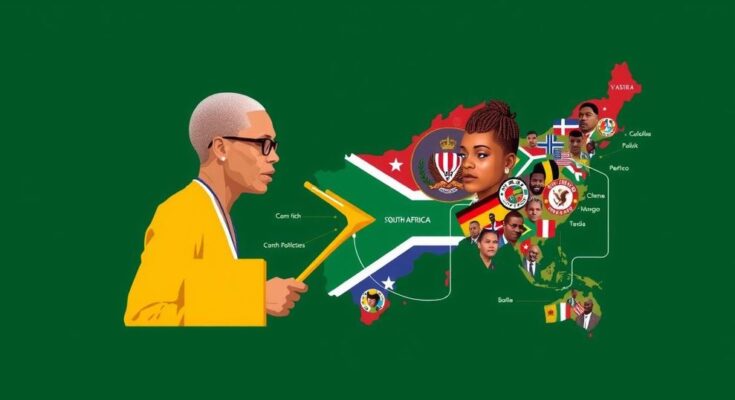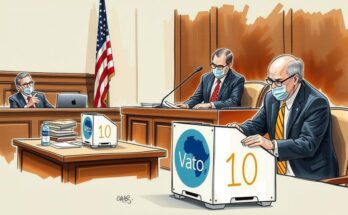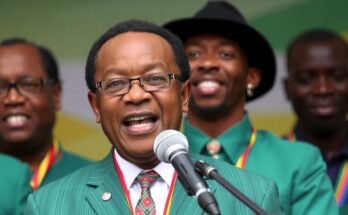The EFF party in South Africa reacted to Donald Trump’s election by claiming U.S. involvement in destabilizing the Democratic Republic of the Congo for resource exploitation. Their assertions linked historical events and contemporary conflicts; however, these claims lack accurate support. Laws exist to ensure U.S. companies do not profit from conflict minerals, contradicting the EFF’s accusations.
Following the results of the November 5 elections, in which Donald Trump was elected as President of the United States, various reactions emerged across Africa. Among these reactions, the Economic Freedom Fighters (EFF), a far-left political party in South Africa, made a statement that was heavily criticized for its inaccuracies. The party, established by the controversial leader Julius Malema, expressed indifference about the election outcome while characterizing U.S. politics as inherently imperialistic. The EFF’s announcement perpetuated a debunked narrative alleging that the Central Intelligence Agency orchestrated the assassination of Congolese Prime Minister Patrice Lumumba in 1961, and further accused the U.S. of instigating conflict in the Democratic Republic of the Congo (DRC), where numerous rebel groups vie for control of valuable natural resources. The party claimed that the U.S. benefits from the instability and exploitation of the DRC’s resources, specifically copper, which represents half of the trade between the two nations. However, this portrayal is misleading. The U.S. has enacted laws to prevent the exploitation of conflict minerals, including the Dodd-Frank Act of 2010, which mandates rigorous due diligence by U.S. companies sourcing minerals from conflict zones. Evidence suggests that instead of profiting from conflict, the U.S. sanctions militia groups involved in illegal mining. Congolese officials have accused neighboring countries, particularly Rwanda and Uganda, of illegally mining resources and financing conflict through rebel movements, further complicating the situation. The U.S. State Department has supported these claims, stating that various armed groups benefit from the movement of stolen resources through Rwanda and Uganda. The ongoing conflict in the DRC has led to significant humanitarian crises, with millions displaced, underscoring the complexity of the region’s geopolitical landscape and the misrepresentation by the EFF.
The Economic Freedom Fighters (EFF) is a far-left political party in South Africa, noted for its radical rhetoric and controversy surrounding its leader, Julius Malema. The party’s statements about U.S. electoral outcomes reflect a broader skepticism regarding American influence in Africa. The Democratic Republic of the Congo has been embroiled in conflict partly due to its rich natural resources, including minerals vital for technology production, which has attracted international scrutiny and allegations of exploitation. The relationship between the U.S. and Congo is fraught, with accusations directed towards other nations for exacerbating instability in the region while the U.S. has been positioned as an actor attempting to mitigate the conflict through policy measures.
The EFF’s comments following the U.S. elections reflect a concerning trend of misinformation regarding international relations, particularly in the context of the Democratic Republic of the Congo. While the party attempted to portray the U.S. as a predatory player in Congolese affairs, a closer inspection reveals a nuanced landscape where U.S. policies aim to prevent the exploitation of conflict minerals. The accusations against Rwanda and Uganda further complicate the narrative, highlighting the challenges faced in addressing the multifaceted issues of resource management and human rights in Central Africa.
Original Source: www.voanews.com




